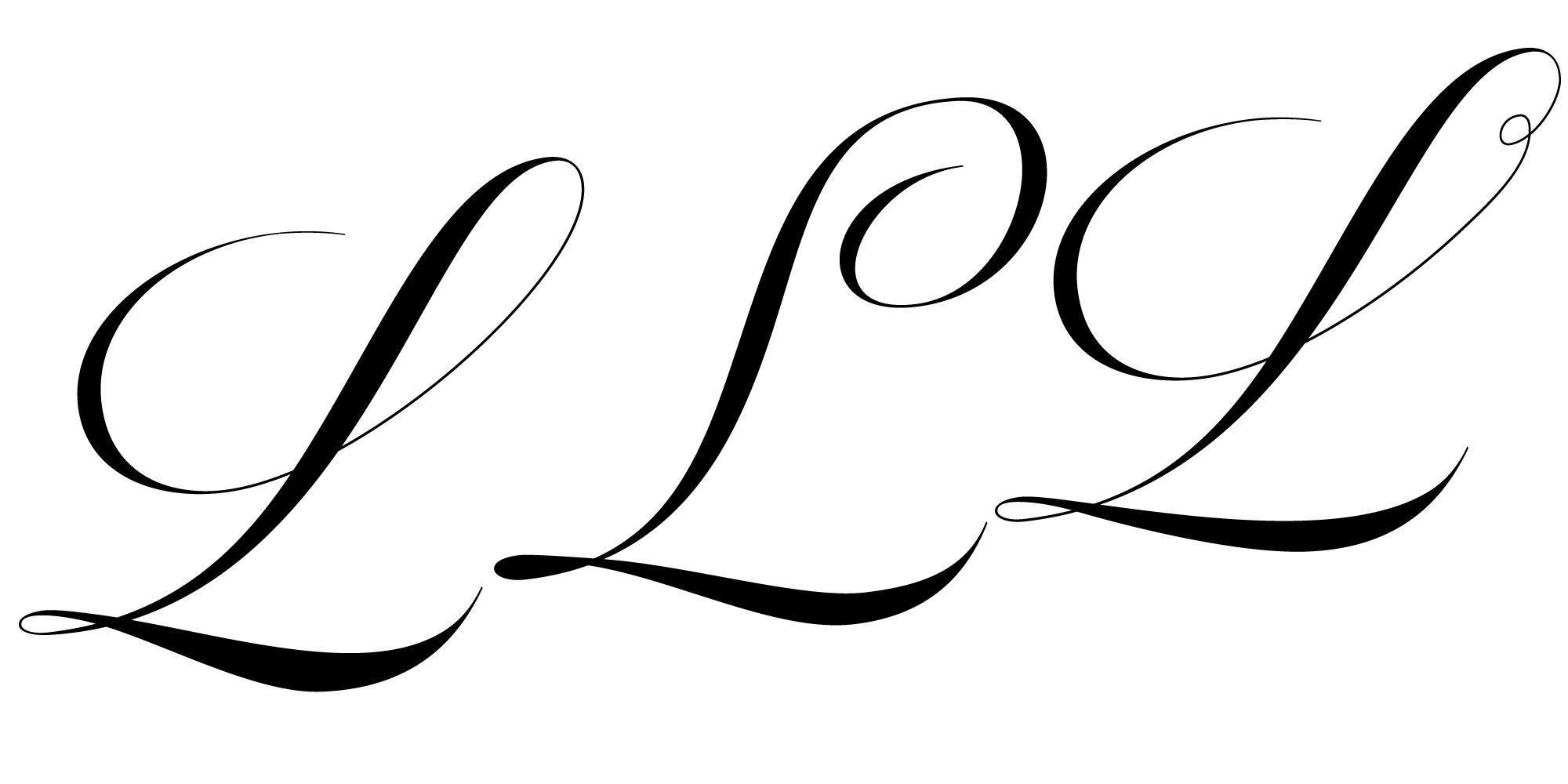Using OpenType Features to Enhance Brand Identity through Custom Typography
Developing a strong brand identity starts with choosing a font family with unique details. Leading brands often opt for a custom typeface, but for many, this may not be an option. OpenType features provide a great solution for customizing typographic text, adding a unique touch to your brand's typography, and even creating custom letterings. While OpenType features can solve typographic problems, they are also great for ornamental and decorative purposes, allowing designers to personalize the font style to better align with brand values.
However, not all fonts with OpenType features include special or alternative glyphs. The best way to explore the extra characters included is by checking the glyphs map, font specimen, or visual previews. Some of the special characters you may find include initial forms, alternate letterforms, terminals, and swashes.
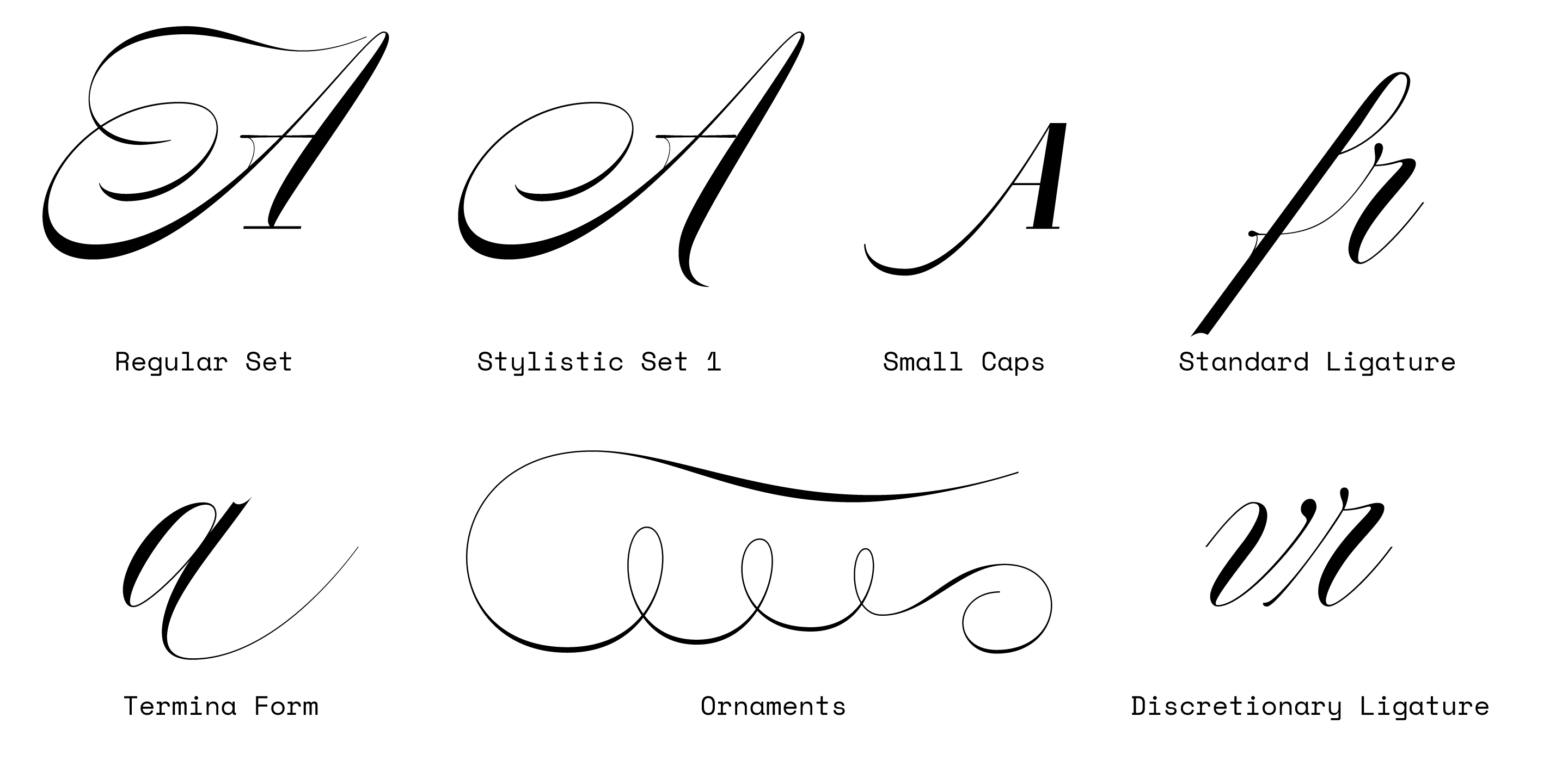
Glyphs included in Nautica.
Which Applications Support OpenType Features?
Most operating systems support OpenType fonts, allowing you to install and use them easily. However, not all applications recognize special OpenType features. Adobe software such as Illustrator and Photoshop, along with many popular non-Adobe tools, fully support these features—offering a wide range of customization options.
Using OpenType Features in Microsoft Word
To access OpenType features in Microsoft Word 2010 and later:
- Go to Format → Font → Advanced.
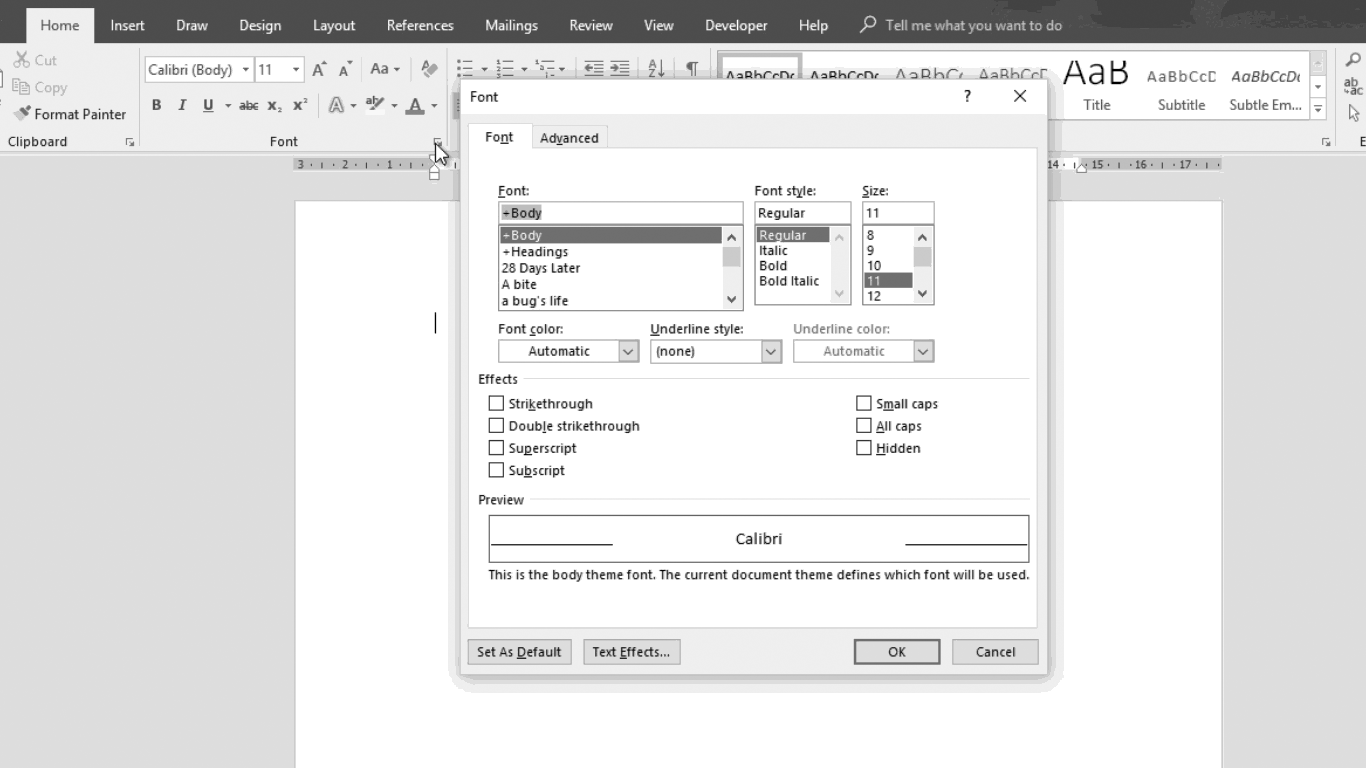
OpenType in Mac Apps: TextEdit and Pages
To view OpenType features in macOS applications:
- Click on Format → Font → Show Fonts → Typography.
These apps provide limited access. For full capabilities, use pro apps like Adobe Illustrator and Photoshop.
Using OpenType in Illustrator, Photoshop, and InDesign
In Photoshop:
- Go to Window → Glyphs.
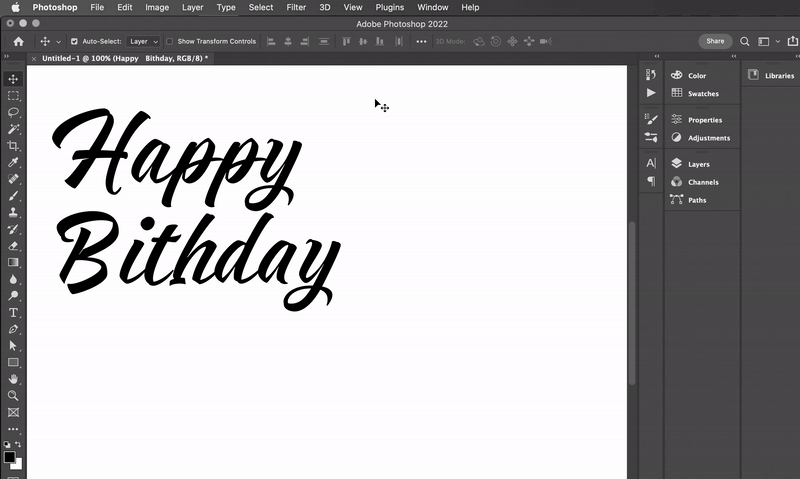
Respect includes a wide collection of alternative glyphs.
In Illustrator and InDesign:
- Go to Window → Type → Glyphs.
- Or use the Help menu and search for "glyphs".
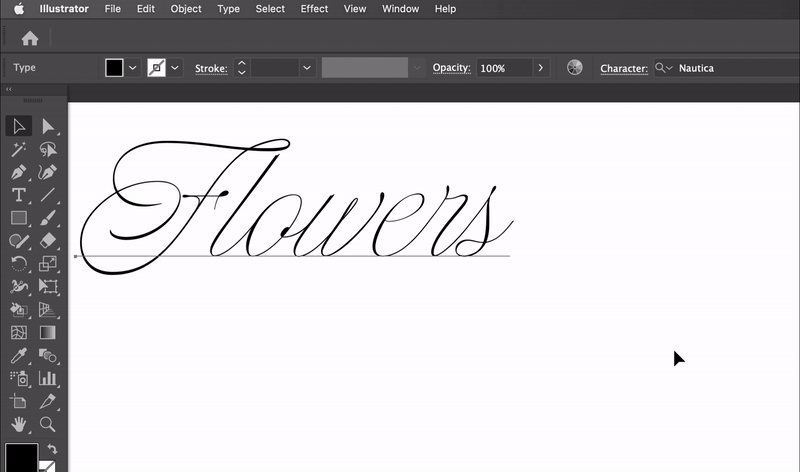
Nautica includes a wide collection of alternative glyphs.
Using Stylistic Sets in InDesign and Illustrator
To apply alternate character sets:
- Go to Window → Type → OpenType.
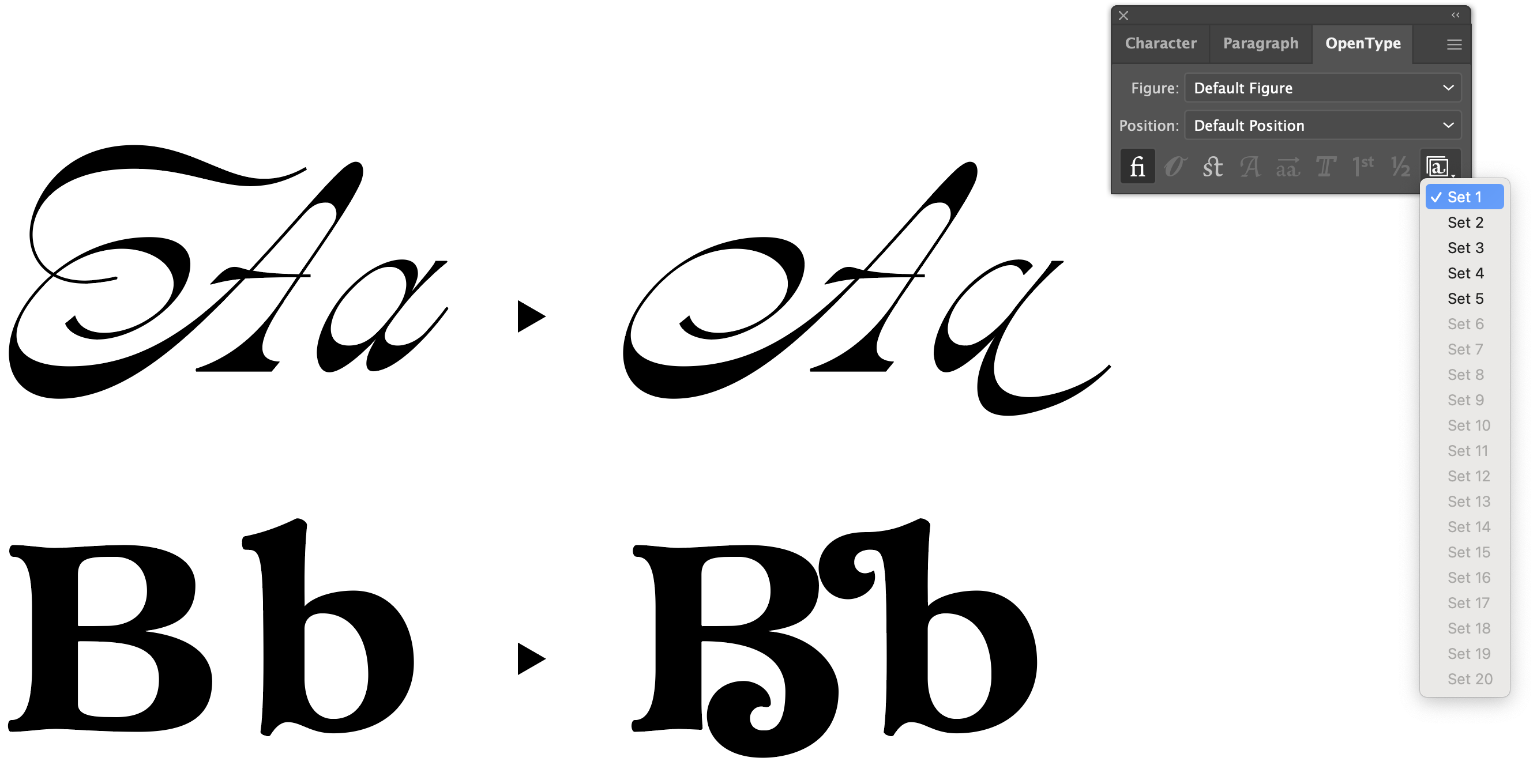
Oddity Script and Nostalgia include interesting swash capitals.
OpenType Features: Everything You Need to Know
OpenType fonts offer advanced typographic options to personalize your design and improve brand recognition. Features include ligatures, stylistic sets, swashes, and much more.
Capitals
- Small Caps: Lowercase-shaped uppercase letters, optimized for balance.
- Titling Capitals: Slim uppercase forms for big headings.
- Capital Spacing: Optimized spacing when using all caps.
Ligatures
- Standard Ligatures: Improve spacing, especially for “fi” and “fl”.
- Contextual Ligatures: Dynamic forms depending on neighboring letters.
- Discretionary Ligatures: Ornamental ligatures for flair.
- Historical Ligatures: Traditional combinations for vintage feel.
Ligatures available in Norman and Nautica.
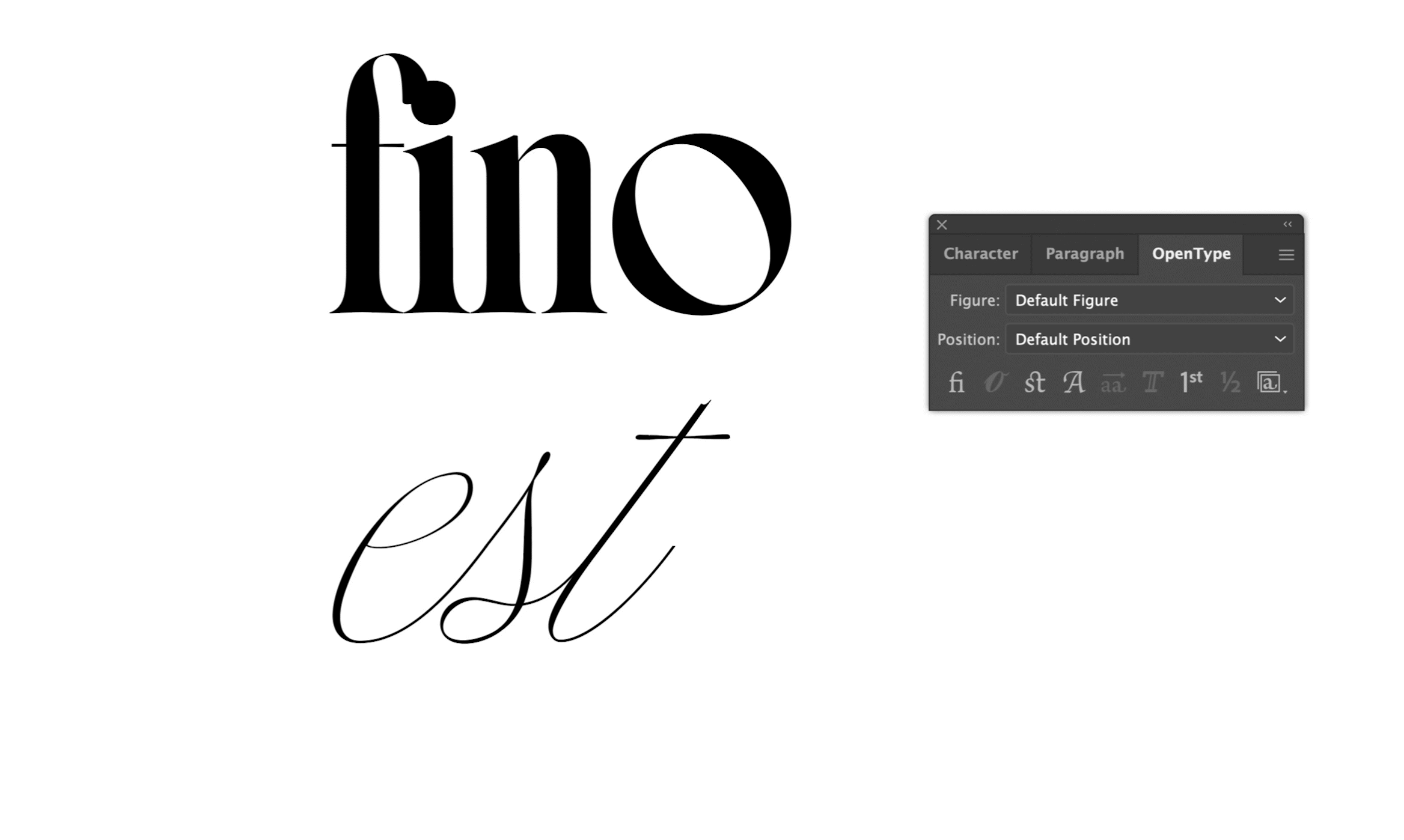
Swashes
Decorative strokes that extend letterforms for visual flair, often used in headlines and logos.
Swashes included in Oddity Script.
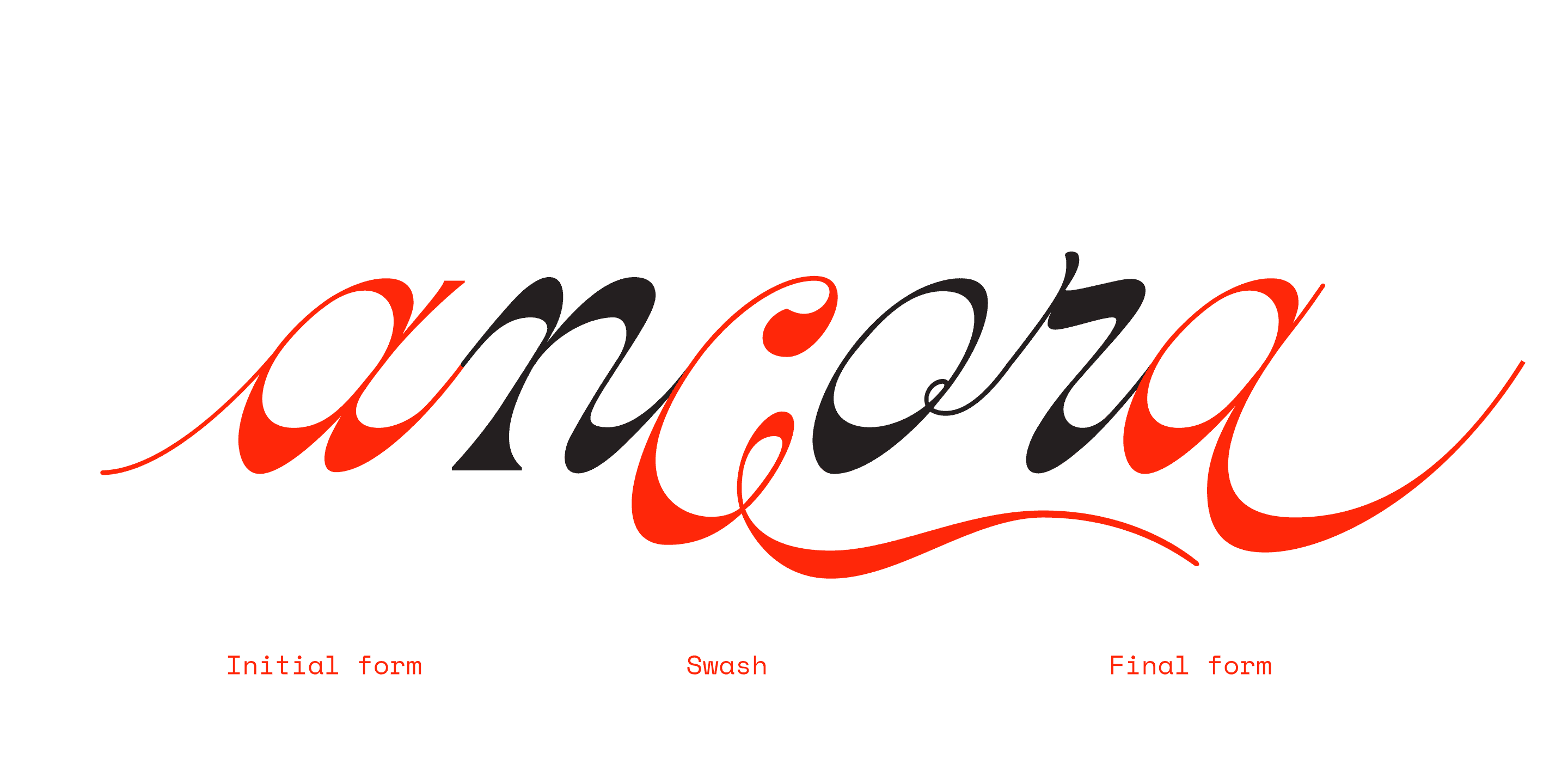
Alternates
Alternate glyphs allow variety within text design, offering personality and creative options for branding.
Stylistic Sets
Predefined groups of alternate glyphs you can apply in one click, great for brand consistency and creative control.
Ornaments, Dingbats & Flourishes
Some fonts include graphic glyphs designed to harmonize with the text, adding decorative or functional icons.
Check out Montana Icons.
